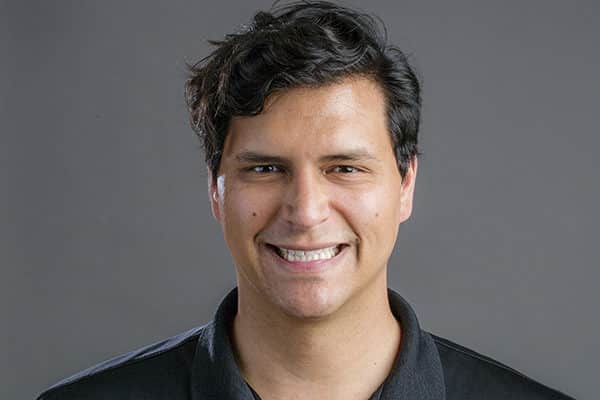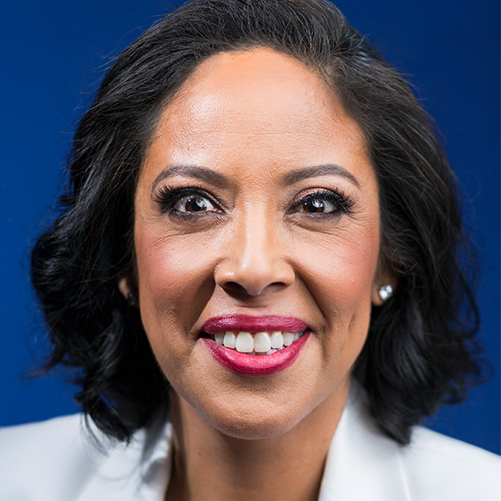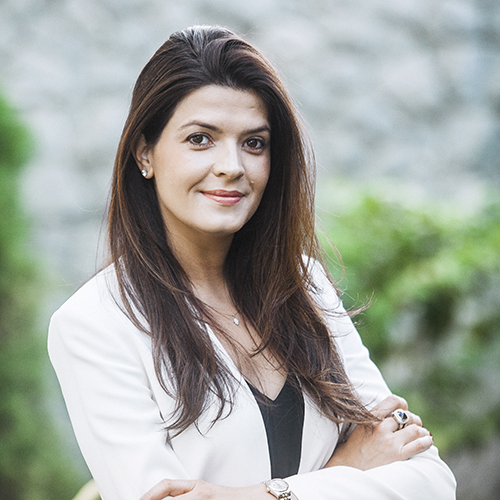|
Getting your Trinity Audio player ready...
|

Gian Duran wasn’t always on his way to become in-house counsel for America’s largest do-it-yourself moving company, U-Haul International Inc. In fact, when the Arizona native completed his undergraduate studies, he stepped straight into the deep end of the 2008 recession.
Driven by lean years, a thirst for competition, and a desire to help others, Duran sought out the legal profession. After graduating from Arizona State University, Duran returned to the university to attend law school at the Sandra Day O’Connor College of Law. His mother was a lawyer as well, and she had worked in immigration and litigation, so the legal profession’s vocabulary and lifestyle are as familiar to him as the dry heat and desert sky.
During law school, Duran worked at the Arizona Attorney General’s office doing civil rights litigation and spent several months working at the Canadian Embassy in Washington, DC. Duran says he was disillusioned by a government run by politicians who seemed more interested in scoring political points than getting anything done, so he sought out private sector clients interested in helping people.
Economic times weren’t entirely better when he completed law school in 2011, but he landed a job with a boutique litigation firm, whose small size and scrappy approach provided him opportunities to learn and lead. In 2014, he joined U-Haul as assistant general counsel, and he now serves the in-house clients and juggles responsibilities in real estate and products liability litigation.
Duran spoke with Hispanic Executive about how he sharpened his skills through trial by fire, how he’s grown with U-Haul, what kinds of mentors he’s had, and more.
What were your early work experiences out of law school?
I first worked for an insurance defense firm. It probably had ten lawyers at the time. It was very interesting work and hands-on work. I was afforded opportunities early on to direct my cases and gain the experience I needed to get to where I am now.
Did you get those opportunities because it was a smaller organization?
Yeah. If it wasn’t me, it was going to be anybody. That was the benefit of working at a place like that. I remember my mom was shocked to hear that I had been taking depositions within the first couple weeks. To throw people into the fire like that can be confusing, but as long as there’s good mentorship—which there was, I had mentors in-house, my mom, and lawyers I’d grown up around—it’s not a bad thing to get quick exposure. If anything, it gets you used to the rigors of what it’s like to be an attorney.
What kind of growth have you experienced during your time at U-Haul?
I was very myopic when I started working in-house. It’s like chess or any other strategy game. You have to have a broad view, and this job has taught me to embrace that. If you’re not watching the whole board, you will be losing pieces. It’s important to think about how tasks you do to prepare a case relate globally—to see each move but also to understand how they affect the global strategy.
What’s the most valuable thing you’ve learned?
How to prepare a case with an endgame in mind and advise business clients with that focus. What you learn as a young lawyer is mostly how to check off lists, accomplish specific tasks, write, and ask the right questions. When you take over the reins on your cases, those activities take on new importance within the context of building toward your ultimate goal. It’s kind of funny because you end up learning everything in reverse. You end up holding all the puzzle pieces, but you cannot really see how they fit together until you are further along in your career. Perspective—tempered by failure and focused by great mentors—is an excellent teacher.
How do you fit into U-Haul and its day-to-day operation?
Initially, I was hired to do only products liability work, but I’ve had to be very flexible as the needs of the company changed. And I have become a better attorney with a broader scope of expertise because of it. From representing the company in consumer arbitration matters on top of products liability, I have learned a lot about people and what informs their decision-making. I’ve gained experience in an entirely new area of law by being open to the opportunity to handle a small part of the company’s real estate litigation. It’s been interesting and challenging working for U-Haul International, and that has driven me forward in my career.
The building blocks I developed at my first firm were great, but it wasn’t enough. Learning how to operate in a corporate structure is a whole challenge in and of itself. Learning how to step into a leadership role—as far as advising and listening to our internal clients and stakeholders—was something I hadn’t really touched on much, but it has been rewarding learning how they view and evaluate cases differently from lawyers.
Good lawyers listen. I think that’s one of the most important and underrated leadership skills of a lawyer in an in-house setting. We listen, and we try to achieve our client’s stated objectives and address their concerns; we try not to be no-men here. If there is a way to achieve a goal, we find it.
Have you seen listening neglected in your career?
I think it’s neglected everywhere.
Everywhere in the world?
Everywhere, all the time. People have a hard time seeing past their conclusions. Listening, observing, critically evaluating yourself and your conclusions—these are underrated skills, especially among lawyers. We’re all rushing to be heard and argue our points, but there are times when the client doesn’t care about what you came to say. They see a case in a different way, and if you neglect his or her point of view, you are not doing your job, and you might be overlooking the key to your case.
That’s what’s most interesting about working in-house: you can prepare this masterful memo that knocks out all the points you’ve chosen to focus on, and when you show up to talk to your CEO, they’ll say, “What about this?” They’ll focus on some point that you didn’t even think of that they’ve seen matter in other cases, or that they know a jury will care about. It could be some minute detail that a jury focuses on that you glossed over. It is humbling and challenging, and it makes me a better lawyer every time it happens.
So, what ways are you continuing to grow as a lawyer? What opportunities do you have to continue to get better?
We investigate and learn things about our cases every single day, and I think that’s great. It keeps me curious. Continue to be curious: it’s the best way to continue to learn and be open to the experiences that will get you there.
Are there collaborative and leadership skills that you’re continuing to develop?
You have to be open to criticism. That’s also an underrated skill.
Do you take criticism well?
Definitely. I’m open to it. It’s an important part of the growth process. The day I stop doing that will probably be the day I die. You can’t get better if you are not open to the possibility that you are doing something wrong.
Do you and your mom ever talk about law?
For sure. I’ll ask her for advice or talk to her about issues. She spent some time as a litigator, so she has a lot of experience related to that. But it’s not an everyday thing. We try to keep our relationship separate from that as much as we can or it would be a job, but I know I can come to her with anything and get the best, unadulterated advice, legal or otherwise. I try not to take that for granted.
As a full-service global law firm, Squire Patton Boggs provides sound legal counsel and seamless service that operates on any scale – locally or globally – allowing us to give our clients a voice, support their ambitions and achieve successful outcomes. We are honored to celebrate the accomplishments of Gian Duran, U-Haul International’s Assistant General Counsel.

